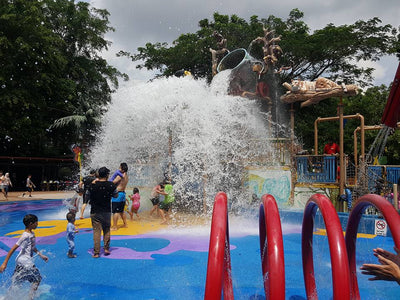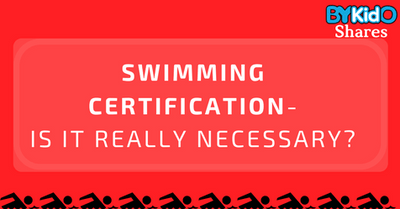
A supportive and enriching educational environment plays a critical role in the healthy growth and development of children with special needs. The right institution will enable such children to hone the cognitive, social, and emotional skills that they’ll need to succeed in adulthood. Moreover, the best special needs schools will go the extra mile to ensure that all students enjoy a fulfilling and personally meaningful experience from their first day of admission until graduation.
All parents want the best for their child—and it’s precisely this desire that can make choosing the right school for a child with special needs a daunting task. Many may have questions about how these schools operate or what families should be looking for in a special needs teacher or educational institution. This article aims to provide expert advice and useful information that can help parents navigate this crucial decision-making process.
An Overview of Special Needs Schools in Singapore
At present, Singapore is home to around 22 Special Education (SPED) Schools. These schools are run by Social Services Agencies (SSAs) but also receive significant funding from—and work closely with—the Ministry of Education (MOE), ensuring a certain standard of education and care is maintained across the board.
Each SPED school develops its curriculum independently while adhering to national guidelines. This gives them the flexibility to accommodate a wide variety of conditions, from physical and sensory disabilities to developmental disorders like ADHD and autism. Whatever their particular approach or specialisation, SPED schools ultimately aim to equip students with crucial life skills, prepare them for employment, and foster independence to the best of their ability.
Types of SPED Schools in Singapore
Special education in Singapore is a wide and diverse field, catering to a spectrum of medical conditions across different age groups. The various types of SPED schools can be broadly classified into three categories: Early Intervention Centres, Special Needs Preschools, and Special Needs Schools or Educational Institutions.
Early Intervention Centres (EICs) cater to infants and children up to the age of six who have been identified with developmental, intellectual, sensory, or physical disabilities. The purpose of these centres is to provide services that maximise a child's developmental growth during their critical early years. This goal is achieved through physical, occupational, and speech therapies, educational support, and social skills training, among other services. The ultimate goal is to prepare these children for entry into formal education programmes.
Special Needs Preschools serve as a bridge between early intervention services and formal schooling. They cater to children from the ages of around three to six, providing a structured and supportive learning environment that is specifically designed to accommodate them. Curricula at these preschools are tailored to enhance children’s development in various domains, including cognitive, motor, and social-emotional skills. Ideally, after their tenure at a special needs preschool, it should be clear whether a child is best off moving on to a mainstream or a special education school.
Special Needs Schools form the mainstay of special education in Singapore. These schools cater to students from primary school age up to the age of 18 or older in some cases. Curricula at Special Needs Schools are not only academically oriented but also focus on life skills, vocational training, and social interaction. Students also receive various therapies and other support services based on their individual needs.
Factors to Consider When Choosing a SPED School
Selecting a school for your child is one of the most significant decisions you will make as a parent, and this decision becomes even more critical when your child has special needs. While the availability of multiple SPED schools in Singapore provides parents with more choices, it also brings with it the challenge of selecting the best fit for their child. Here are some factors you may wish to consider:
Class Size
The teacher-to-student ratio in a classroom can significantly impact your child's learning experience. Smaller class sizes often translate into more individualised attention for your child, which also means teachers can better cater to the specific needs of each student.
Available Facilities
Schools should have facilities that can help your child address their needs and navigate their condition. This may include therapy rooms, sensory rooms for students with sensory integration issues, or adapted physical education facilities for students with physical disabilities. The availability and quality of these facilities can greatly enhance your child's learning experience.
Individual Education Plans (IEPs)
Each child with special needs is unique, and their educational plan should reflect this uniqueness. A good SPED school should be able to provide an Individual Education Plan (IEP) for each student. An IEP is a customised educational roadmap that outline’s your child’s personal learning objectives and the strategies that the school will use to help them achieve these. Ideally, you’ll want to work collaboratively with your child’s therapists and teachers to develop an IEP that’s well-suited for them. You should also review and update the IEP periodically to reflect your child's progress and changing needs.
Partnership/Integration with Mainstream Institutions
Some SPED schools in Singapore partner with mainstream schools for certain activities. This exposure can provide opportunities for children with special needs to interact with their mainstream peers, fostering a sense of inclusivity and mutual understanding. These interactions can also help improve the social development and self-confidence of your child. Therefore, you may wish to consider whether potential schools offer such integration opportunities.
Choosing the right SPED school for your child is a crucial decision that requires careful thought and consideration. While it can be overwhelming, being informed and prepared can make the process more manageable. At the end of the day, the ultimate goal is to find a school where your child will feel supported, valued, and empowered to learn and grow.







